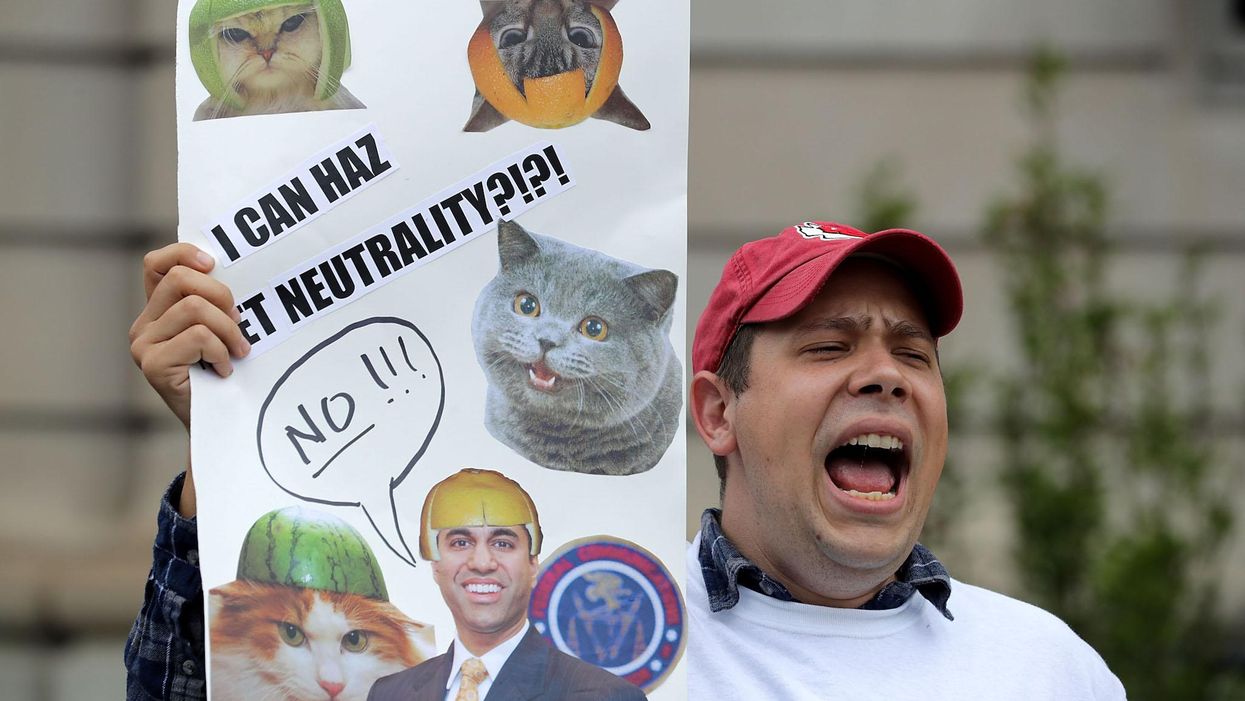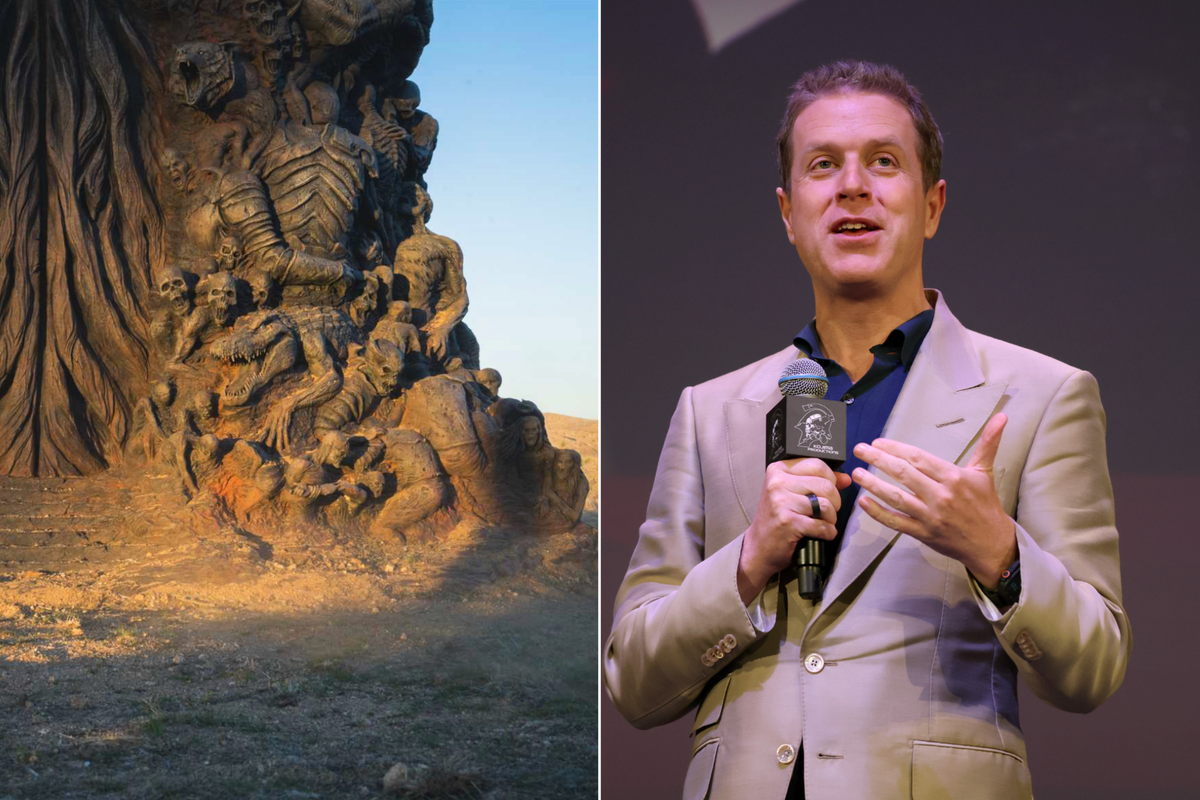News
Darren Richman
Dec 14, 2017

Proponents of net neutrality protest against Federal Communication Commission Chairman Ajit Pai outside the American Enterprise Institute before his arrival May 5, 2017 in Washington, DC
Getty
Donald Trump regularly courts controversy but this might be one of his most contended issues yet.
What is net neutrality?
The net neutrality concept is that all traffic on the internet should be treated equally, a truly American ideal that echoes the words carved into the base of the Statue of Liberty. Essentially, your broadband provider can't block or restrict the speeds of certain websites and apps. It also preserves our right to communicate freely online regardless of your internet service provider (ISP).
What is being proposed?
An end to net neutrality. The FCC is on the verge of giving massive ISPs the power to not treat traffic or access to websites equally. Put simply, if an ISP wanted to charge a premium for access to YouTube, you might have to pay extra to use it effectively.
How might this affect you on a day-to-day basis?
You're no doubt wondering exactly how all this might affect you. If this change occurs the big providers would call the shots and decide what websites, applications and content would be included in your broadband package. Although this is an American issue, it would have repercussions for us all.
If, for example, one broadband provider decided they preferred Amazon's streaming platform then they might charge Netflix an added fee to receive the same speeds. Ultimately it would be Netflix subscribers who'd have to foot the bill.
Has it happened anywhere else?
Portugal is a country where this system is currently in place and it has striking similarities with the way cable television functions in the United States. After paying an initial fee for their broadband, people have to pay an additional €4.99 per tier with sections separated into groups of similar sites under headings like social, video and email.
Mark Zuckerberg has expressed his concern that additional fees will lead to a negative impact on Facebook. He said:
If a service provider can block you from seeing certain content or can make you pay extra for it, that hurts all of us and we should have rules against it. Right now, the FCC has rules in place to make sure the Internet continues to be an open platform for everyone. At Facebook, we strongly support those rules
What about online games?
Gamers are concerned that the concept of fair competitive gameplay will be in jeopardy if this came to pass, while viral trends and popular memes might become a thing of the past.
Will startups be affected?
Small businesses and startups would theoretically struggle if the repeal is successful. The internet being open and freely accessible fosters a sense of innovation that has improved the world in many ways, but those days could be numbered and it might cost us the next Twitter or Monzo.
More: The 16 best net neutrality memes
Top 100
The Conversation (0)















